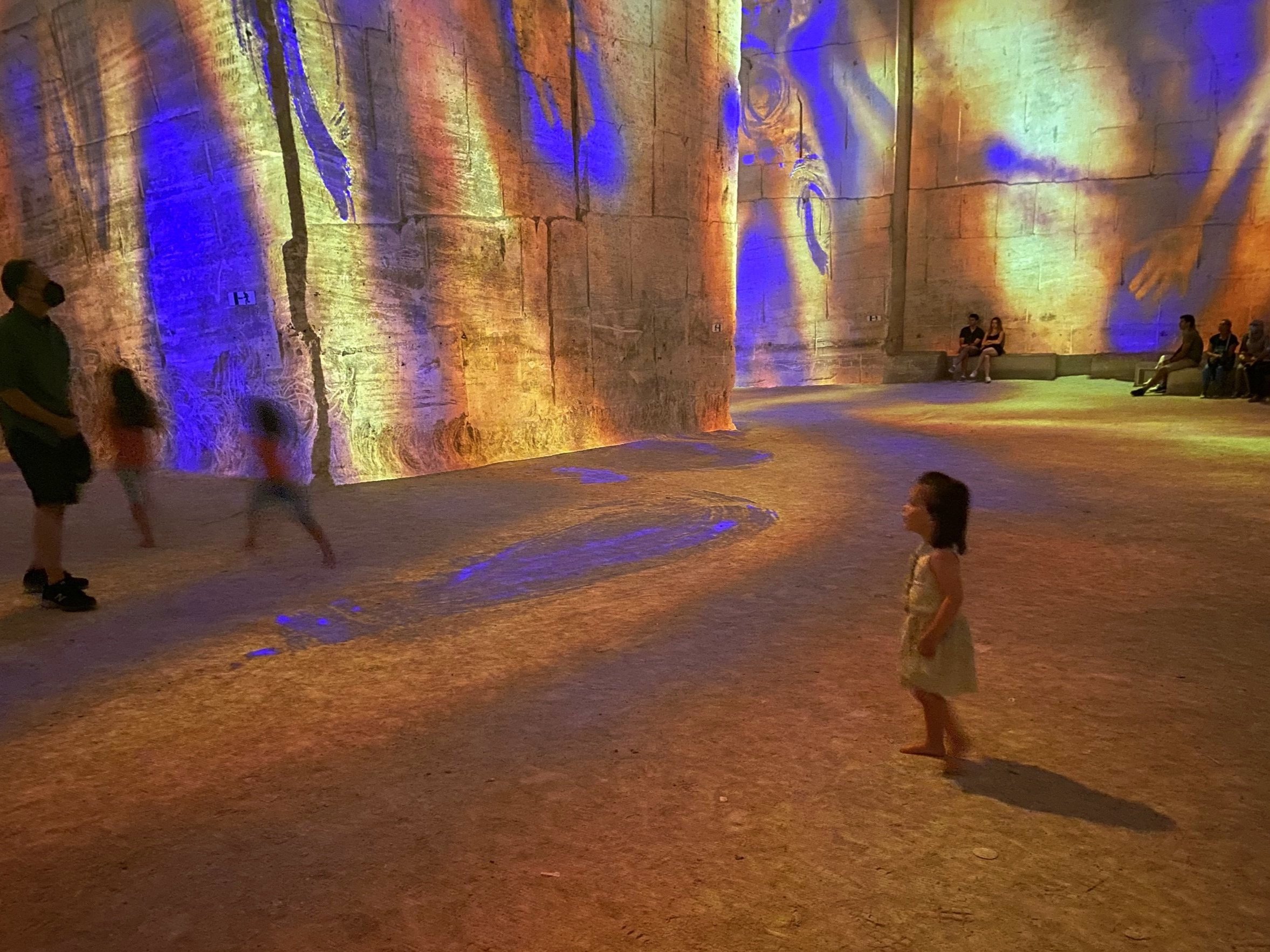Ask 2 Questions
Carrières de Lumiéres, Les Baux-de-Provence, France
“Did you grow up in Southern California?”
“Have you always wanted to be an architect?”
Blame it on social media, smart phones, COVID-19— blame it on parents' lack of time and attention required to keep their children's politeness and decorum when friends or relatives come to visit. The blank stare. The one-word answer. The inaudible response. Worse yet, no eye-contact.
“Girls, why are you staring at your shoes? When you speak to someone, you must look them in the eyes.”
Many years ago, when my children were deemed pre-adolescents, I was proud of their natural ability to communicate with other humans outside of our home—those they hadn't seen in a while, peers' parents, a chance meeting. Although it didn't come naturally at first, my persistent encouragement (and one dollar given for each successful communication) to have them ask two questions of someone older than them soon became instinctual. Mom is going to tell me to ask her buddy two questions, so I might as well get it out of the way now.
Fast forward several years: the intricate and uncharted realm of Tik Tok, Roblox, and Zoom classes have led me back to where I started as an ever-vigilant cultivator of child-to-adult communication.
Granted, the extraordinary months of pandemic lockdowns drew humanity together, and the last thing on a parent's mind was their child's conversational interactions with adults. However, those children are now on their way to college and adulthood. Many early years foundation stage (EYFS) specialists believe that excellent interactions between adults and children make a significant impact in how effectively communication and language abilities develop. Furthermore, youngsters benefit from being around attentive and passionate adults who are interested in conversing with them. As a result, my Ask Two Questions rule was born.
Once upon a Brody
My kids see no point in pocketing a dollar bill for asking their long-lost auntie what her favorite movie of all time was. Most likely because recent inflation has reduced its value to seventy cents. When the adult responds with their own questions and a conversation ensues, the true motivation for the exchange of dialog should be the empowerment of the minor. This empowerment, aka confidence, encourages our future adults to be inquisitive and pushes them to be and know more. At least, that is my intention as a mother.




